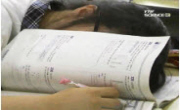Previous studies have identified psychological factors as prognostic factors of idiopathic sudden sensorineural hearing loss (ISSNHL). Those studies suggested that serum levels of stress-related hormones [such as cortisol, growth hormone, prolactin, a...
http://chineseinput.net/에서 pinyin(병음)방식으로 중국어를 변환할 수 있습니다.
변환된 중국어를 복사하여 사용하시면 됩니다.
- 中文 을 입력하시려면 zhongwen을 입력하시고 space를누르시면됩니다.
- 北京 을 입력하시려면 beijing을 입력하시고 space를 누르시면 됩니다.
(The) usefulness of stress-related hormones as predictors and prognostic factors for idiopathic sudden sensorineural hearing loss
한글로보기https://www.riss.kr/link?id=T15668806
- 저자
-
발행사항
[Seoul] : Graduate School, Yonsei University, 2020
-
학위논문사항
학위논문(석사) -- Graduate School, Yonsei University , Department of Medical Science , 2020.8
-
발행연도
2020
-
작성언어
영어
- 주제어
-
발행국(도시)
서울
-
기타서명
특발성 돌발성 감각 신경성 난청에서 예측 및 예후인자로서 스트레스 호르몬(cortisol, aldosterone, DHEAS, ACTH)의 유용성
-
형태사항
v, 31장 : 삽화 ; 26 cm
-
일반주기명
지도교수: Young Joon Seo
-
UCI식별코드
I804:11046-000000525339
- 소장기관
-
0
상세조회 -
0
다운로드
부가정보
다국어 초록 (Multilingual Abstract)
Psychological measures such as serum levels of stress-related hormonal (cortisol, ACTH, aldosterone, dehydroepiandrosterone sulfate[DHEAS]) and questionnaires (Beck Depression Inventory, Perceived Stress Scale) were used in this study involving 15 patients diagnosed with ISSNHL.
Serum DHEAS level measured on day 1 showed a statistically significant correlation with the hearing threshold in the hearing test performed at the time of diagnosis (p=0.037, R²=0.293). Serum ACTH level was measured on day 1, and patients were classified into normal and elevated groups based on a threshold of 1.5pg/mL; the normal group had better hearing thresholds in the first and second hearing test than the elevated group (p=0.040, 0.015, respectively). In the stress-related questionnaires, the BDI score showed a statistically significant correlation with the last hearing test (p=0.015, R²=0.376).
We demonstrated the possible role of stress-related hormones in the pathogenesis of ISSNHL and suggest that depressive stress response can be a strong predictor of treatment response in patients with ISSNHL. However, the impact of response to stress on the inner ear and endolymph homeostasis remains unknown. Further investigation is necessary to identify the mechanism of interaction between stress and hearing ability in the inner ear.
Previous studies have identified psychological factors as prognostic factors of idiopathic sudden sensorineural hearing loss (ISSNHL). Those studies suggested that serum levels of stress-related hormones [such as cortisol, growth hormone, prolactin, antidiuretic hormone (ADH), adrenocorticotropic hormone (ACTH)] are elevated in patients with ISSNHL patients. However, little is known regarding their psychosocial measures and association with treatment response or therapeutic prognosis in ISSNHL. Therefore, we aimed to determine whether psychological factors of patients are associated with the severity of hearing loss treatment outcomes..
Psychological measures such as serum levels of stress-related hormonal (cortisol, ACTH, aldosterone, dehydroepiandrosterone sulfate[DHEAS]) and questionnaires (Beck Depression Inventory, Perceived Stress Scale) were used in this study involving 15 patients diagnosed with ISSNHL.
Serum DHEAS level measured on day 1 showed a statistically significant correlation with the hearing threshold in the hearing test performed at the time of diagnosis (p=0.037, R²=0.293). Serum ACTH level was measured on day 1, and patients were classified into normal and elevated groups based on a threshold of 1.5pg/mL; the normal group had better hearing thresholds in the first and second hearing test than the elevated group (p=0.040, 0.015, respectively). In the stress-related questionnaires, the BDI score showed a statistically significant correlation with the last hearing test (p=0.015, R²=0.376).
We demonstrated the possible role of stress-related hormones in the pathogenesis of ISSNHL and suggest that depressive stress response can be a strong predictor of treatment response in patients with ISSNHL. However, the impact of response to stress on the inner ear and endolymph homeostasis remains unknown. Further investigation is necessary to identify the mechanism of interaction between stress and hearing ability in the inner ear.
국문 초록 (Abstract)
특발성 돌발성 감각신경성 난청으로 원주 세브란스 기독병원 이비인후과에서 입원 치료를 한 15명을 대상으로 전향적 연구를 진행하였다. 환자는 모두 경구 스테로이드및 항바이러스제, 성상신경 차단술을 시행 받았고, 난청의 정도가 50dB 이상인 환자 에게는 고실 내 스테로이드 주사를 시행하였고 70dB 이상인 환자에게는 고압산소치 료를 추가적으로 시행하였다. 청력검사는 진단 당시, 5일 째 퇴원하는 날, 첫 번째 외래 추적관찰인 2주 후 시행하였으며, 혈장 호르몬 수치는 Cortisol, ACTH, Aldosterone, DHEAS를 입원 1일 째, 5일 째 혈액검사를 통해 측정하였다. 주관적 스트레스 정도를 파악하기 위하여 벡 우울척도와 지각된 스트레스 척도, 두 가지의 설문지를 진단 당시 시행하였다.
입원 후 1 일째 시행된 혈청 DHEAS 수치는 진단 당시 난청의 정도와 통계적으로 유의한 양의 상관관계를 나타냈다 (p = 0.037, R² =0.293). 또한 1 일째 측정된 혈청 ACTH를 1.5pg/mL를 기준으로 두 그룹으로 나누었을 때, 정상 그룹은 비정상 그룹보다 진단 당시와 퇴원 시 시행한 청력검사에서 통계학적으로 유의하게 더 나은 청력역치 값을 보였다 (p=0.040, 0.015). 스트레스 관련 설문지에서는 BDI 점수와 최종 청력 검사에서의 청력역치와 통계적으로 유의한 양의 상관관계를 나타냈다 (p = 0.015, R² =0.376).
본 연구는 돌발성 난청에서 스트레스 관련 호르몬과 설문지가 병의 정도와 예후를 예측할 수 있는 인자로써의 역할을 할 수 있는 가능성을 보여주고 있다. 혈청 DHEAS 수치는 돌발성 난청의 진단 당시 난청의 정도와 유의한 상관관계를 보였으며 BDI 점수가 높을수록 최종 청력검사에서 난청의 정도가 심한 것을 보아 치료에 반응이 적을 수 있음을 암시하고 있다. 그러나 내이 및 내 림프 항상성에 대한 스트레스에 대한 반응에 대한 병리 생리학적인 메카니즘에 대해서는 가설은 있으나 여전히 밝혀진 것이 없다. 또한 스트레스와 난청간의 명확한 선후관계를 파악하기 어려워 추후 대규모 전향적 추가 연구가 필요하다.
이전의 연구에 따르면 스트레스는 특발성 돌발성 감각신경성 난청의 원인 중 하나로 알려져 있다. 특히 시상 하부 뇌하수체-부신 축을 이루는 호르몬인 코티솔, 성장 호르몬, 프로락틴, 항이...
이전의 연구에 따르면 스트레스는 특발성 돌발성 감각신경성 난청의 원인 중 하나로 알려져 있다. 특히 시상 하부 뇌하수체-부신 축을 이루는 호르몬인 코티솔, 성장 호르몬, 프로락틴, 항이뇨 호르몬, 부신피질 자극 호르몬 등의 혈장 농도가 돌발성 난청 환자에서 증가해 있다는 결과가 있으나 호르몬 및 스트레스의 정량적 정도가 발병 당시 병의 정도와 치료에 대한 반응 또는 예후와의 연관성에 대해서는 알려진 바가 거의 없다. 이에 우리는 환자의 심리적 스트레스 요인이 난청의 정도 예측 및 예후인 자로써의 가치가 있는지에 대해 알아보고자 한다.
특발성 돌발성 감각신경성 난청으로 원주 세브란스 기독병원 이비인후과에서 입원 치료를 한 15명을 대상으로 전향적 연구를 진행하였다. 환자는 모두 경구 스테로이드및 항바이러스제, 성상신경 차단술을 시행 받았고, 난청의 정도가 50dB 이상인 환자 에게는 고실 내 스테로이드 주사를 시행하였고 70dB 이상인 환자에게는 고압산소치 료를 추가적으로 시행하였다. 청력검사는 진단 당시, 5일 째 퇴원하는 날, 첫 번째 외래 추적관찰인 2주 후 시행하였으며, 혈장 호르몬 수치는 Cortisol, ACTH, Aldosterone, DHEAS를 입원 1일 째, 5일 째 혈액검사를 통해 측정하였다. 주관적 스트레스 정도를 파악하기 위하여 벡 우울척도와 지각된 스트레스 척도, 두 가지의 설문지를 진단 당시 시행하였다.
입원 후 1 일째 시행된 혈청 DHEAS 수치는 진단 당시 난청의 정도와 통계적으로 유의한 양의 상관관계를 나타냈다 (p = 0.037, R² =0.293). 또한 1 일째 측정된 혈청 ACTH를 1.5pg/mL를 기준으로 두 그룹으로 나누었을 때, 정상 그룹은 비정상 그룹보다 진단 당시와 퇴원 시 시행한 청력검사에서 통계학적으로 유의하게 더 나은 청력역치 값을 보였다 (p=0.040, 0.015). 스트레스 관련 설문지에서는 BDI 점수와 최종 청력 검사에서의 청력역치와 통계적으로 유의한 양의 상관관계를 나타냈다 (p = 0.015, R² =0.376).
본 연구는 돌발성 난청에서 스트레스 관련 호르몬과 설문지가 병의 정도와 예후를 예측할 수 있는 인자로써의 역할을 할 수 있는 가능성을 보여주고 있다. 혈청 DHEAS 수치는 돌발성 난청의 진단 당시 난청의 정도와 유의한 상관관계를 보였으며 BDI 점수가 높을수록 최종 청력검사에서 난청의 정도가 심한 것을 보아 치료에 반응이 적을 수 있음을 암시하고 있다. 그러나 내이 및 내 림프 항상성에 대한 스트레스에 대한 반응에 대한 병리 생리학적인 메카니즘에 대해서는 가설은 있으나 여전히 밝혀진 것이 없다. 또한 스트레스와 난청간의 명확한 선후관계를 파악하기 어려워 추후 대규모 전향적 추가 연구가 필요하다.












